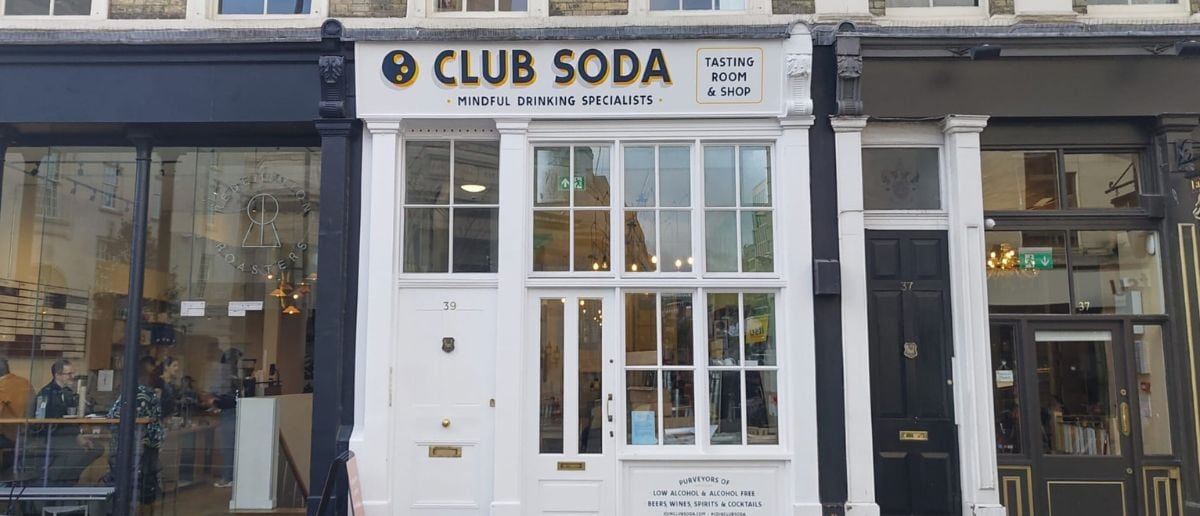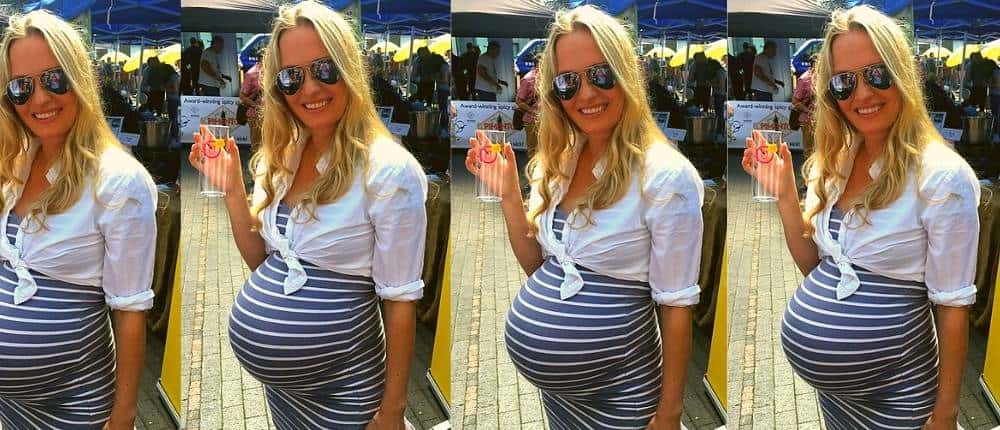
This website uses cookies to improve your experience. We'll assume you're ok with this, but you can opt-out if you wish. Read More
The Next Round: What happens after you change your drinking?

Drinking alcohol is not advised during pregnancy. The official guidance in the UK and many other countries is to avoid alcohol completely when pregnant. But what about alcohol-free drinks? Are they safe? And is there a risk of harm to the baby?
Heavy drinking during pregnancy is certainly harmful to the development and future health of an unborn baby. In extreme cases, this can lead to what is known as fetal alcohol spectrum disorder (FASD).
However, there is limited evidence of harm to the baby from drinking small amounts of alcohol. In scientific terms, a lack of evidence is not proof that there is no harm. But several reviews have found no evidence of harm from small amounts of alcohol consumption before and during pregnancy. For example, Patra and others conclude that they can find no evidence of harm from drinking up to 10 grams of pure alcohol per day. This is roughly equal to a small bottle of full-alcohol beer or a small glass of full-alcohol wine.
In 2007, the official UK guidance changed to tell pregnant people to “avoid drinking alcohol”. Before 2007, the guidance was not to drink “more than one or two units of alcohol once or twice a week”. The change was not based on any new scientific evidence and British Pregnancy Advisory Service has argued that the new advice is too strict and causes unnecessary anxiety. In their view, there is no evidence to say that drinking small amounts of alcohol causes harm. The medical officers took an extreme precautionary principle to come up with their new zero alcohol in pregnancy guidance.
Many people will drink before they realise they are pregnant. And some experts think that making pregnant people worry about drinking small amounts is more harmful than actually having consumed alcohol. This includes worry about the impact of alcohol-free drinks.
Adult alcohol-free drinks such as beers, wines and spirits contain up to 0.5% alcohol by volume (ABV for short). Compared to full-strength alcoholic drinks, the alcohol-free versions contain a fraction of the amount of alcohol. Take beers for example. Alcohol-free beers usually contain anywhere between 0.05% and 0.5% alcohol, whereas alcoholic beers are around 5% or higher. The amount of alcohol in alcohol-free drinks is therefore less than one-tenth, or even as little as one-hundredth of the alcoholic products. In wines and spirits the reduction in alcohol content is even more noticeable.
One Canadian study from 2010 identified a possibility that alcohol-free drinks might contain more alcohol than is indicated on their labels. However, drawing wider conclusions from this single study is problematic, since it found only two drink brands contained significantly more alcohol than claimed on their labels. Neither of these brands is available for sale in the UK.
The way in which alcohol-free drinks are labelled is confusing. You may see the words “alcohol-free” and “non-alcoholic” to describe drinks with the same alcohol content. Different countries around the world sometimes have different legal definitions, but in Club Soda (and in line with the growing international consensus) we consider any drinks below 0.5% to be alcohol-free.
Half a per cent is a very small amount of alcohol. Many everyday foodstuffs and drinks that you aren’t considered alcoholic contain similar amounts of alcohol. Several studies have measured the alcohol content of food and drink products. Tests of kombucha in the US found some to contain as much as 2.5% alcohol. One study measured alcohol content in fruit juices, fresh fruit, breads and other baked goods, and found many of them to contain significant amounts of alcohol. In their conclusions, the authors even wondered whether warning labels should be added to some foods, in case children consume harmful amounts of alcohol through eating them daily.
A well-known study from Germany looked into the impact of consuming these trace amounts of alcohol. In the study, 78 participants drank 1.5 litres (three large bottles) of 0.4% alcohol beer in an hour. Their blood alcohol levels were then tested repeatedly in the following two and a half hours using very accurate methods. The highest blood alcohol level measured in any sample was 0.069mg per 100ml. To give a comparison, this is less than one-hundredth of the legal driving limit in England.
Based on the available evidence, drinking reasonable amounts of alcohol-free drinks under 0.5% is extremely unlikely to cause any harm to a baby. Although the official guidance in the UK and elsewhere is based on “no amount of alcohol during pregnancy”, many people have come to the conclusion that alcohol-free drinks do not count as “alcohol”.
For example, UK pregnancy charity Tommy’s recommends non-alcoholic wines and beers for pregnancy. Made for Mums is also happy to recommend 0.5% wines and beers to pregnant women. And as already noted, BPAS doesn’t think that even small amounts of alcohol are a major risk.
We understand that this is an extremely important subject for every parent-to-be. In the end, it is always going to be a personal decision for every future parent. If you have any concerns, we recommend that you discuss the issue with your doctor, midwife or other health professional.
But as for pregnancy and alcohol-free drinks (0.5% ABV and lower), there does not seem to be any risk from moderate consumption of alcohol-free drinks.
This website uses cookies to improve your experience. We'll assume you're ok with this, but you can opt-out if you wish. Read More
| Name | Domain | Purpose | Expiry | Type |
|---|---|---|---|---|
| wpl_user_preference | joinclubsoda.com | WP GDPR Cookie Consent Preferences. | 1 year | HTTP |
| PHPSESSID | www.tickettailor.com | PHP generic session cookie. | 55 years | HTTP |
| AWSALB | www.tickettailor.com | Amazon Web Services Load Balancer cookie. | 7 days | HTTP |
| YSC | youtube.com | YouTube session cookie. | 55 years | HTTP |
| Name | Domain | Purpose | Expiry | Type |
|---|---|---|---|---|
| VISITOR_INFO1_LIVE | youtube.com | YouTube cookie. | 6 months | HTTP |
| Name | Domain | Purpose | Expiry | Type |
|---|---|---|---|---|
| _ga | joinclubsoda.com | Google Universal Analytics long-time unique user tracking identifier. | 2 years | HTTP |
| sbjs_migrations | joinclubsoda.com | Sourcebuster tracking cookie | 55 years | HTTP |
| sbjs_current_add | joinclubsoda.com | Sourcebuster tracking cookie | 55 years | HTTP |
| sbjs_first_add | joinclubsoda.com | Sourcebuster tracking cookie | 55 years | HTTP |
| sbjs_current | joinclubsoda.com | Sourcebuster tracking cookie | 55 years | HTTP |
| sbjs_first | joinclubsoda.com | Sourcebuster tracking cookie | 55 years | HTTP |
| sbjs_udata | joinclubsoda.com | Sourcebuster tracking cookie | 55 years | HTTP |
| sbjs_session | joinclubsoda.com | SourceBuster Tracking session | Session | HTTP |
| Name | Domain | Purpose | Expiry | Type |
|---|---|---|---|---|
| mailchimp_landing_site | joinclubsoda.com | Mailchimp functional cookie | 28 days | HTTP |
| __cf_bm | tickettailor.com | Generic CloudFlare functional cookie. | Session | HTTP |
| NID | google.com | Google unique id for preferences. | 6 months | HTTP |
| Name | Domain | Purpose | Expiry | Type |
|---|---|---|---|---|
| _ga_10XZMT03ZM | joinclubsoda.com | --- | 2 years | --- |
| AWSALBCORS | www.tickettailor.com | --- | 7 days | --- |
| cf_clearance | tickettailor.com | --- | 1 year | --- |
| VISITOR_PRIVACY_METADATA | youtube.com | --- | 6 months | --- |
Join Club Soda for 10% off your first order of drinks for UK delivery. Plus get our latest news and special offers for members to choose better drinks, change your drinking and connect with others.
If you get an error message with this form, you can also sign up at eepurl.com/dl5hPn